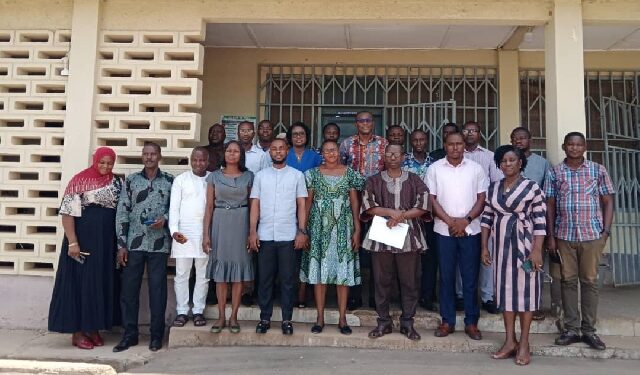The Ghana Health Service (GHS) in the Savannah Region has inaugurated a 7-member Inter-agency Coordinating Committee for Health Promotion (ICC-HP) in Damongo.
This initiative follows similar committees established in the Northern regions, including Upper East, Upper West, Northern, and North East, aiming to elevate the health and well-being of the Ghanaian populace.
Savannah Regional Health Director, Dr Josephat Hyuzaghl, Savannah explained the purpose behind the inauguration.
He emphasised the committee’s role in training the Regional/District Risk Communication and Community Engagement Committees (RCCE), alongside re-inaugurating the Regional Inter-agency Coordination Committee for Health Promotion.
Dr Hyuzaghl underscored the significance of these activities in fortifying the health system’s readiness to respond to public health emergencies and enhancing health promotion endeavors across the region.
Highlighting past health challenges, including yellow fever, Marburg, measles outbreaks, and floods, Dr Hyuzaghl stressed the committee’s pivotal role as health promotion champions.
He articulated the strategic collaboration with government agencies to advocate for and implement policies advancing public health initiatives.
Effective risk communication, as noted by Dr Hyuzaghl, stands as a cornerstone in emergency response. Accurate, timely, and trusted information dissemination empowers communities to adopt appropriate behaviors and embrace public health interventions, thereby mitigating disease burdens and improving health outcomes.
Acting Director of the Health Promotion Division at the Ghana Health Service, Mrs Mabel Kissiwah Asafo, reiterated the vital role of the newly inaugurated committee members in advancing the collective mission of the ICC-HP.
She charged them with actively contributing to health and well-being improvements within Ghanaian communities.
Mrs Asafo outlined the diverse composition of ICC-HP members, drawn from entities such as the Ghana Health Service, Information Services Department, Environmental Health and Sanitation Department, media outlets, and Non-Governmental Organisations.
She emphasised the committee’s mandate to address contemporary health issues and cautioned against stigmatization, particularly regarding conditions like leprosy, often associated with misconceptions rooted in superstitions.


